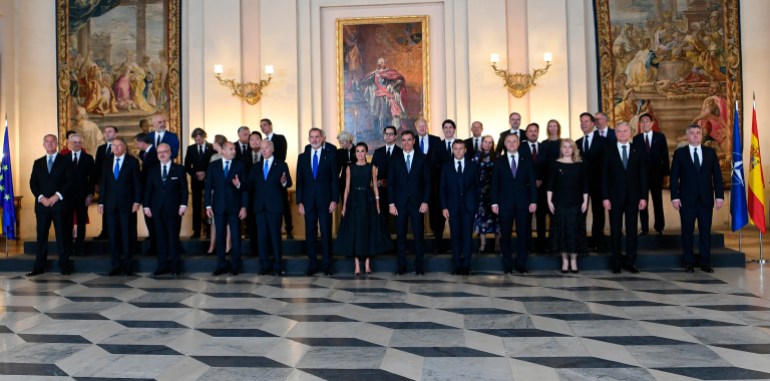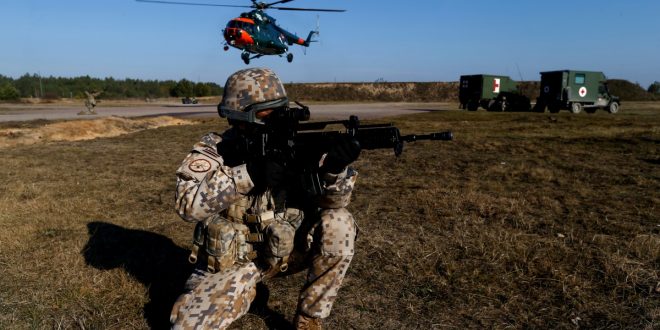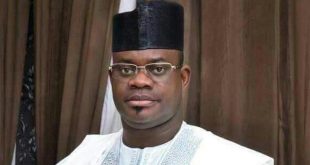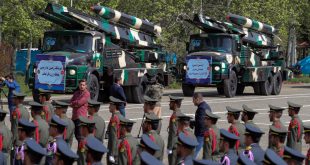EXPLAINER
The bloc agreed to a new strategic framework with focus on Russia and pledge to boost capabilities during Madrid summit.
Leaders of the 30 countries that make up the North Atlantic Treaty Organization (NATO) have agreed to a sweeping strategic framework for the next decade that focuses on the “direct threat” posed by Russia and declares, for the first time, China a security challenge.
The alliance, which had appeared to be flagging in recent years, pledged during the “transformative” summit in Madrid a renewed and revamped approach to its defence and deterrence capabilities, moving to strengthen its forces along the bloc’s eastern flank. It also officially invited Sweden and Finland, which respectively share maritime and land borders with Russia, to the alliance.
NATO members also pledged to continue support for Ukraine following Russia’s invasion; re-upped pledges to come to other members’ aid in the event of an attack; and set up a collective process to maintain a “technological edge” in an increasingly complex global environment.
Meanwhile, Russian President Vladimir Putin accused NATO leader of seeking to “assert their supremacy, their imperial ambitions”, while Chinese foreign ministry spokesperson Zhao Lijian said the alliance was trying to “extend its tentacles to Asia-Pacific in an attempt to export the Cold War mentality”.
Here are the key takeaways from the NATO summit:

‘Threat’ from Russia
- NATO leaders said Russia has violated the “norms and principles that contributed to a stable and predictable European security order” and that the bloc “cannot discount the possibility” of attack on members’ territory.
- The alliance called Russia the “most significant and direct threat” to its security, warning of Moscow’s military build-up in the Baltic, Black and Mediterranean Sea regions; military integration with Belarus; and nuclear modernisation and “signalling”.
- NATO also said it “does not seek confrontation and poses no threat” to Russia, stressing it will respond to threats in a “united and responsible way” and will keep channels of communication open.
NATO to ‘significantly strengthen’ forces
- NATO leaders said “no one should doubt our strength and resolve to defend every inch of allied territory”, pledging to “significantly strengthen” its deterrence and defence postures.
- The bloc said it will strengthen its “combat-ready forces” and prepositioned equipment, as well as better integrate different countries’ defence capabilities and streamline decision-making to “rapidly reinforce any ally, including at short or no notice”.
- NATO chief Jens Stoltenberg said that the bolstering of forces will mostly take place along the bloc’s eastern flank near Russia, with so-called “high-readiness troops” increased to 300,000 from the current number of 40,000.
- US President Joe Biden also announced that his country would boost its military presence in Europe, including surging troops to Romania, creating a new US base in Poland, sending two F-35 squadrons to the United Kingdom, and stationing air defence systems in Italy and Germany.
- The alliance pledged to boost its technological development and invest in the “ability to prepare for, deter, and defend against the coercive use of political, economic, energy, information and other hybrid tactics by states and non-state actors”.
‘Challenge’ from China
- NATO heads said China’s “stated ambitions and coercive policies challenge our interests, security and values”, adding Beijing uses political, economic and military “tools” to increase its influence, while remaining “opaque about its strategy, intentions and military build-up”.
- The alliance said China is working to “subvert the rules-based international order, including in the space, cyber and maritime domains”. It noted particular concern about China and Russia’s “deepening partnership” and “mutually reinforcing attempts” to undercut international norms.
‘Open-door policy’
- NATO reaffirmed its “open-door policy”, officially inviting Finland and Sweden to join the bloc after Turkey dropped its opposition.
- It also said it will continue to bolster its partnerships with Bosnia and Herzegovina, Georgia and Ukraine “to advance our common interest in Euro-Atlantic peace, stability and security”.
- They called an independent Ukraine “vital” for stability in the Euro-Atlantic region.
‘Conflict, fragility and instability’ in MENA region
- The bloc said security challenges, coupled with climate change, food insecurity and health emergencies, in North Africa, the Sahel and the Middle East provides fertile ground for “non-state armed groups, including terrorist organisations” and “destabilising and coercive interference” by strategic competitors.
-
Spain’s Foreign Minister Jose Manuel Albares said NATO could intervene in Mali if needed, with the alliance referencing “terrorism” among “hybrid threats” that hostile powers could use to undermine its stability.
Climate change, emerging technology
- The NATO leaders also addressed climate change as the “defining challenge of our time”, saying it exacerbates conflict, fragility and geopolitical competition.
- They warned of malign actors operating in cyberspace, “disruptive technologies” that could change the face of conflict, and adversaries “investing in technologies that could restrict our access and freedom to operate in space”.
 Top Naija News: Nigerian News, Breaking News Nigeria and World News Top Naija News is a daily news publication in Nigeria, delivering the latest breaking news in Nigeria and around the world.
Top Naija News: Nigerian News, Breaking News Nigeria and World News Top Naija News is a daily news publication in Nigeria, delivering the latest breaking news in Nigeria and around the world.




